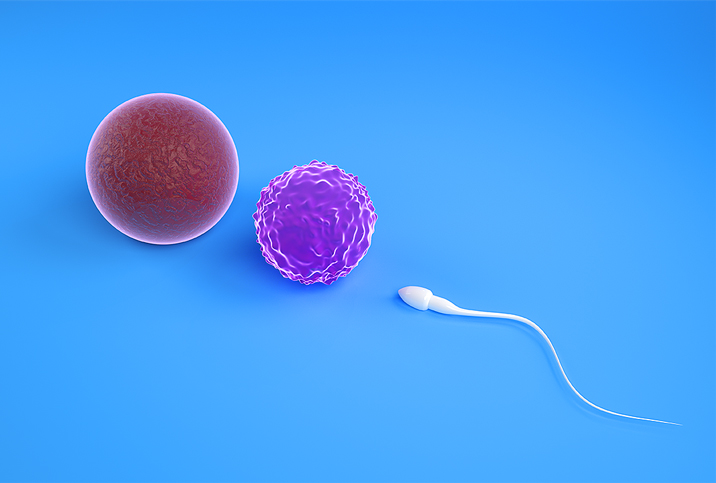The Facts About Gonorrhea and Chlamydia

Engaging in unprotected sex puts you at risk for catching a sexually transmitted disease (STD), including two of the most common, chlamydia and gonorrhea. Both infections are easy to spread and straightforward to cure, but they can cause serious health problems if left untreated.
Chlamydia is caused by the chlamydia trachomatis bacterium, and can infect both men and women. In addition to affecting the rectum, penis and vagina, chlamydia can also affect the throat.
This sexually transmitted disease can be contracted when an individual has unprotected anal, vaginal or oral sex with a partner who has chlamydia. A pregnant woman can also pass the infection on to a baby delivered vaginally, causing eye infections or pneumonia.
Gonorrhea, also known as "the clap," is caused by infection with the Neisseria gonorrhoeae bacterium. As with chlamydia, gonorrhea is usually contracted by having unprotected oral, vaginal or anal sex with an infected person, and can affect men and women. Gonorrhea spreads rapidly and easily, and is on its way to becoming an untreatable superbug, with a rising number of antibiotic-resistant strains of the bacteria in circulation.
Risk factors for chlamydia and gonorrhea
Chlamydia and gonorrhea, as with all sexually transmitted diseases, can infect anyone who engages in high-risk behaviors, such as unprotected sex or sex with multiple partners. Additionally, people who have been infected with an STD in the past face a higher risk for reinfection. Both STDs are most often seen in adults and men who have sex with other men.
Medical experts agree that you can reduce your risk for gonorrhea and chlamydia by abstaining from sex, using condoms correctly during intercourse or by having sex with only one mutually monogamous sexual partner who doesn't have an STD.
If you think you might be at risk of having contracted an STD, get tested. Detecting the infection early can protect you from infecting others and developing more serious health complications.
Symptoms and complications of chlamydia
Chlamydia often goes undetected because in many cases it presents no symptoms. For this reason, it's crucial to undergo regular STD testing if you're at risk of getting chlamydia. Regular testing can help ensure you receive prompt treatment and avoid infecting others, especially if you're engaging in sex with multiple partners or are in an open relationship.
In cases where chlamydia does cause symptoms, patients may experience:
- Penis discharge
- Itching or burning near the penis opening
- Burning with urination
- Testicular pain and swelling
- Rectal discharge, pain or bleeding
- Abnormal or strong-smelling vaginal discharge
- Pain with sexual intercourse
- Lower abdominal pain
- Fever or nausea
- Bleeding between periods
- Bleeding after sex
Left untreated, chlamydia can lead to serious health complications in men, including the infection spreading to the testicles and prostate glands. Chlamydia in women can lead to pelvic inflammatory disease (PID), infertility and ectopic pregnancy, due to scarring of the fallopian tubes. Both men and women can suffer reactive arthritis, also a potential complication of gonorrhea. Chlamydia can even lead to unexpected symptoms, such as joint pain.
Symptoms and complications of gonorrhea
Although most people with gonorrhea infections experience no symptoms, you can look for a few signs. Males may experience penile discharge, difficulty urinating, swelling of the urethra (the tube from which urine flows) or testicular discomfort. If the gonorrhea is not treated, complications can result, such as swelling of the penis, testes or related areas, or urethral stricture (narrowing of the urethra). Gonorrheal infection of the rectum can cause rectal pain, bleeding, discharge or proctitis (inflammation of the lining of the rectum).
For females, symptoms are usually mild, if detectable at all, and include abnormal vaginal discharge, vaginal and/or pelvic pain, difficulty urinating and a tubo-ovarian abscess in the fallopian tube and ovary. Untreated gonorrhea in the urinary tract and genitals can spread through the upper urogenital tract and cause severe reproductive complications and kidney infection.
Untreated gonorrhea of the cervix can cause infection, scarring or inflammation of the fallopian tubes and pelvic inflammatory disease (PID), which can cause pelvic pain, infertility and risk for ectopic pregnancy.
How are chlamydia and gonorrhea diagnosed?
Both gonorrhea and chlamydia are easy to diagnose. If you notice new or unusual symptoms, be sure to see your doctor for an STD screening. Your doctor will typically review your medical history, complete a physical exam and have you fill out a questionnaire about your symptoms and lifestyle.
The most common diagnostic tool is a urine test. Urine tests are noninvasive and relatively simple. Your healthcare provider will have you pee into a sterile cup, and a lab will test the urine for bacteria. It typically takes three to five days to get results back, so it's important to refrain from any unsafe sexual activity while you wait.
Doctors can also test for gonorrhea and chlamydia with a swab test by taking a swab in either your urethra or cervix. Blood tests are another option.
Treatment options for gonorrhea and chlamydia
Chlamydia is relatively easy to treat. If you test positive, your doctor will prescribe antibiotics either in one dose or multiple doses over the course of five to 10 days. Infections typically clear in a week or two after treatment begins.
You should abstain from sex during treatment because the infection can still be passed on until you test negative for chlamydia. Also, keep in mind it's possible to get reinfected with chlamydia if you continue to have unsafe sex. While chlamydia is easy to treat, you don't want to get repeated infections, which can cause scarring.
Gonorrhea is also typically easy to treat with antibiotics; however, many strains of the STD are becoming resistant to this treatment. If you are infected with a resistant strain of the disease, your doctor will likely recommend a stronger treatment.
If symptoms persist despite treatment, a repeat lab test should be performed to determine if the gonorrhea infection has been cured, in what is called a "test of cure" (TOC). Repeat gonorrhea infection occurs in 10 percent of MSM within one year, similar to the rates among women. Most repeat infections result from infected partners not seeking treatment or the initiation of sexual activity with a newly infected partner. People with gonorrhea infections have an increased risk of HIV infection and other STIs.
Prevention is key
While both gonorrhea and chlamydia can be easily treated, it's important you don't wait. If you are worried you have an STD or have recently engaged in unprotected sex, get tested.
STD testing can be done at the doctor's office or in the comfort of your home, so there's no excuse not to be informed. Long-term consequences of an untreated STD can lead to painful sex, urethra scarring and pelvic inflammatory disease in women (a disease that can lead to reproductive damage, ectopic pregnancy and chronic pain), among other complications.
While abstinence is the only true way to prevent an STD, that option is not realistic for most people. In the absence of abstinence, communicate often with your sexual partners, use protection and get tested.


















